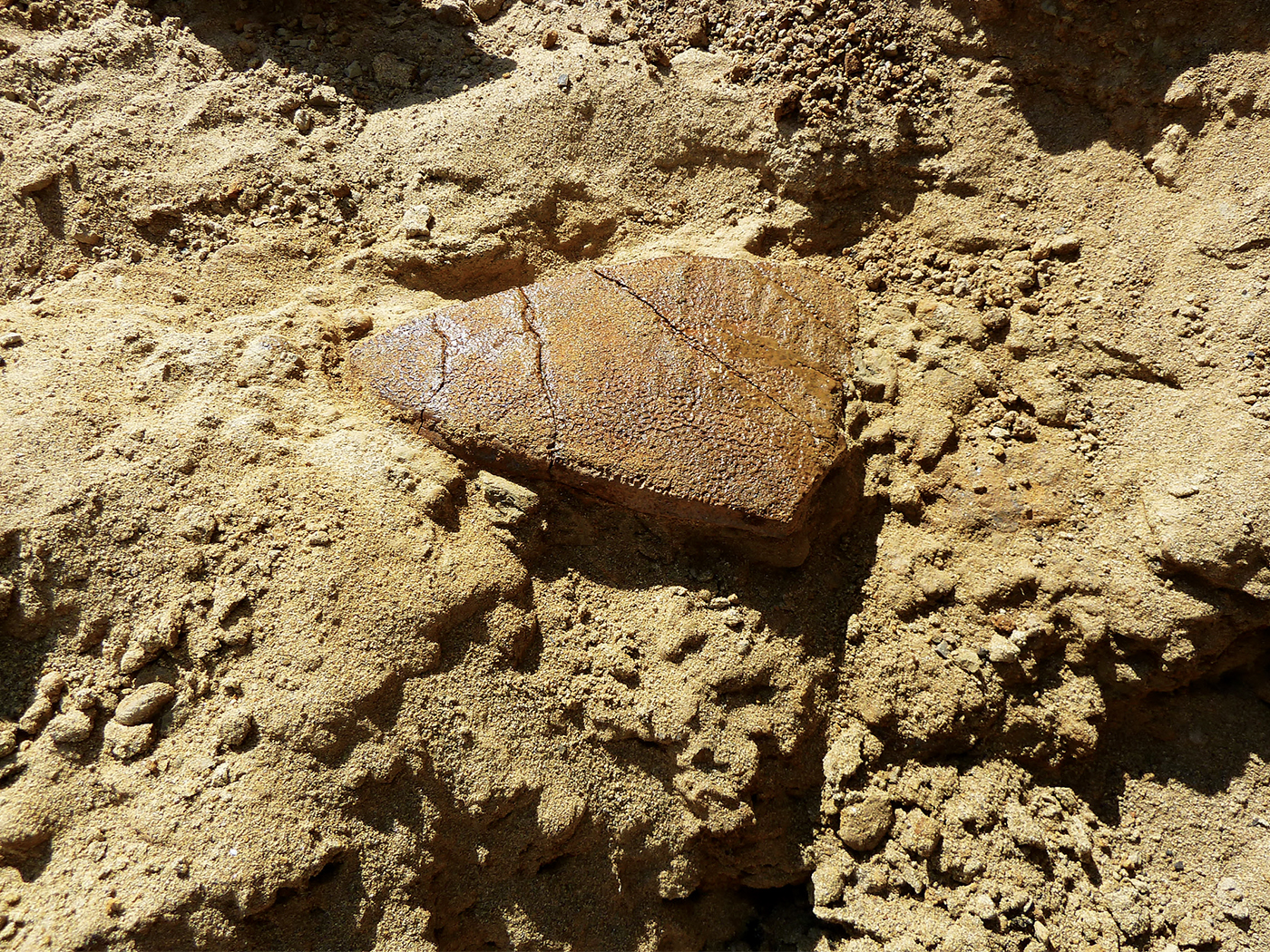On January 5, 1982, Judge William R. Overton of the District Court in Little Rock handed down a decision holding that the Arkansas Act for Balanced Treatment of Creation-Science and Evolution-Science violates the establishment clause of the First Amendment, academic freedom, and due process, in McLean v. Arkansas Board of Education. The judge is one of more than 400 U.S. District Court judges, and another federal or state judge can reject Overton's reasoning and reach an opposite result.
At the trial from December 7-17, 1981, many well-qualified creationist scientists appeared as expert witnesses. They gave outstanding scientific testimony, but the defense was not adequately prepared and did not do adequate questioning. (Neither ICR nor attorneys Bird and Whitehead were involved in the trial or discovery.) The news media grossly distorted their testimony. Part I of this article is a summary by Dr. Duane Gish, who was present during the trial, of the actual testimony given. Part II is a brief of the judge's decision.
I. WHAT ACTUALLY OCCURRED AT THE TRIAL
By Duane T. Gish, Ph.D.
The plaintiff's first witnesses consisted of a group of theologians, philosophers and historians. Included were Father Francis Bruce Vawter, Prof. of Religious Studies, De Paul University, Chicago, Dr. George Marsden, Prof. of History, Calvin College, Grand Rapids; Rev. Kenneth Hicks, Methodist bishop, Little Rock; Dr. Langdon Gilkey, Prof. of Theology, School of Divinity, University of Chicago; Dr. Michael Ruse, Prof. of Philosophy, University of Guelph, Ontario; and Dr. Dorothy Nelkin, Prof. of Sociology, Cornell University, New York.
The testimony of this group of witnesses was directed towards linking creation science with Biblical Christianity. Marsden claimed that the Arkansas law gave this view preferential treatment. In cross-examination Nelkin admitted that evolution is based on an a priori assumption of no creator.
During cross-examination it was established that Ruse had published an article in which he had stated that Dr. Stephen Jay Gould (slated to be one of the plaintiff's star witnesses) could not be a scientist because he was a Marxist. Ruse accused creationists of quoting out of context but then later quoted a portion of Gish's book Evolution: The Fossils Say No flagrantly out of context.
The plaintiffs' next group of witnesses included four scientists: Dr. Francisco Ayala, Prof. of Biology, University of California Davis; Dr. G. Brent Dalrymple, U.S. Geological Survey, Menlo Park, California; Dr. Stephen Jay Gould, Prof. of Geology, Harvard University; and Dr. Harold J. Morowitz, Prof. of Biophysics, Yale University. The purpose of this group of witnesses was to argue that creation had no scientific validity, and to describe evidence from science supporting evolution theory. Ayala cited evidence from molecular biology, Dalrymple cited radiometric dating, and Gould described evidence from geology and paleontology. Morowitz attacked the creationist's use of the Second Law of Thermodynamics as evidence against evolution.
The plaintiffs' final list of witnesses included several educators, who all claimed they could not implement the Arkansas law. Dr. William V. Mayer, Director of the Biological Science Curriculum Study, made the astounding statement that presenting an alternative interpretation of origins would confuse students and so should be avoided! All of the witnesses had apparently been coached by the ACLU staff of lawyers to maintain that they knew of no scientific evidence to support creation and that creation science was altogether religious.
The State's first defense witness was Dr. Norman Geisler (Ph.D. in philosophy, Loyola U., Chicago), Prof. of Systematic Theology, Dallas Theological Seminary. To many, Geisler's brilliant testimony destroyed much of the plaintiffs' case. Citing much historical evidence, he established that belief in a creator does not necessarily involve religious worship or commitment, that the source of inspiration for a belief or proposition is independent of the evidence used to support the proposition, and that belief in creation is a logical inference based on valid evidence. In an attempt to discredit Geisler's testimony, the ACLU lawyer quoted Geisler's published belief that UFO's were under the control of Satan. In most of the media this was headlined in order to mute the effect of Geisler's testimony. Dr. Larry Parker, a professor in the Department of Curriculum and Instruction, Georgia State U., maintained that teaching the two models of origins would give students a valid choice, teaching them how to think rather than what to think.
The scientist witnesses for the state included Dr. W. Scot Morrow, Prof. of Biochemistry, Wofford College, Spartanburg, SC; Dr. Donald Chittick, a chemist engaged in biomass to energy conversion; Dr. Chandra Wickramasinghe, a mathematician-astronomer and Professor and Head of Department of Applied Mathematics, University College, Cardiff, Wales; Robert Gentry, a physicist at Oak Ridge National Laboratories; Dr. Wayne Frair, Prof. of Biology, The King's College; Dr. Margaret Heider, Ph.D. in botany; Dr. Ariel Roth, Prof. of Biology, Geoscience Research Institute; and Dr. Harold Coffin, Prof. of Geology, Geoscience Research Institute.
Dr. Morrow, although an evolutionist and an agnostic, maintained that creationists actually look at more data than do evolutionists and that an inquiry approach involving multiple working hypotheses was a superior teaching method.
Dr. Wickramasinghe, one of England's foremost scientists, also spoke for Sir Fred Hoyle, famous British astronomer with whom he has co-authored several books. Although both have long been identified as atheists, Wickramasinghe testified that they had concluded through a study of information science that the probability of an evolutionary origin of life was essentially zero—no greater than the probability that a tornado sweeping through a junkyard would assemble a Boeing 747! They also now disavow the Big Bang theory and the idea of biological evolution via mutations, both of which involve degradation of information. Prof. Wickramasinghe chided evolutionists for their arrogance and intolerance of creationist views.
Excellent testimony was given by zoologist Frair (taxonomic studies supporting creation), botanist Heider (botanical studies supporting separate origin of major plant groups), chemist Chittick (evidence for catastrophism and a young age), physicist Gentry (evidence from radiohaloes supporting a recent rapid creation), biologist Roth (studies on rapid coral growth), and geologist Coffin (paleontological evidence for creation and catastrophism).
From his decision it is obvious that Judge Overton (as well as most of the news media) completely ignored the scientific evidence presented by the defense witnesses while accepting without question evidence offered by the plaintiffs' witnesses. Many remarks made by Judge Overton during the trial revealed his bias against the creationist side.
II. A BRIEF STATEMENT ON THE ARKANSAS DECISION
By John W. Whitehead, J.D.
The Arkansas district court gave a constitutionally erroneous and factually inaccurate opinion in McLean u. Arkansas Board of Education, No. 81-322 (E.D. Ark. Jan. 5, 1982). It is regrettable that the Arkansas defense did not adequately present or adequately support the strong constitutional arguments that could have been made in favor of balanced treatment of creation-science and evolution-science.
A. No Violation of Separation of Church & State. Teaching creation-science along with evolution-science does not violate separation of church and state. Creation-science can be presented solely in terms of scientific evidence and related inferences and without any religious concepts. The primary effect and purpose are to teach all of the scientific evidence on the subject of origins. See generally Bird, "Freedom of Religion and Science Instruction in Public Schools," 87 Yale Law Journal 515,554-70 (1978); Bird, "Freedom from Establishment and Unneutrality in Public School Instruction," 1979 Harvard Journal of Law & Public Policy 125, 165-74.
B. Constitutional Errors. (1) The Arkansas court is incorrect in stating that creation-science is Genesis (pp. 17, 19). Creation-science consists of scientific discussion rather than biblical discussion or concepts. Reference in public schools to a creator and consistency of public school curriculum with religion is permitted by the establishment clause under all U.S. Supreme Court precedents. (2) The court is also incorrect in saying "that creation science has no scientific merit or educational value as science" (pp. 32, 28). Examples of positive evidence are the abrupt appearance of complex life in the fossil record and the systematic gaps between fossil types. (3) The Arkansas court is incorrect in defining science as limited to "natural law," and in contending that creation-science is not "explanatory," "testable," "tentative," or "falsifiable" (p. 22). The scientific method cannot exclude evidence, and true science cannot define evidence away, on the basis of bias against the supranatural. Creation-science is as explanatory, testable, tentative, and falsifiable as evolution-science. (4) The opinion is incorrect in arguing that "[t]he two model approach of the creationists is simply a contrived dualism which has no scientific factual basis or legitimate educational purpose" (p. 20). That there are only two basic scientific explanations of origins is acknowledged by many evolutionist scientists, is required by logical analysis (the universe either always existed or was created, life either evolved or was created, etc.), and is strongly supported by educational research. (5) It is incorrect in stating that a balanced treatment requirement violates the academic freedom of students on the ground that teachers who despise creation-science will refuse to teach evolution-science and thereby will deprive students of "the cornerstone of modern biology" (p. 35). Presentation of all the scientific evidence on origins obviously expands rather than restricts students’ academic freedom, and any deprivation results from teachers' choice rather than from a balanced treatment requirement. These constitutional issues will be discussed more fully in a forthcoming Impact article, and are treated exhaustively in the above legal articles.
C. Factual Inaccuracies. The Arkansas opinion also contains numerous factual errors, of which the following are only examples. (1) Paul Ellwanger in supporting model legislation was not "motivated by ... desire to see the Biblical version of creation taught in the public schools" (p. 13), which he opposes, but instead to see all of the scientific evidence on origins taught. (2) "Creation from nothing ... and subsequent destruction of the world by flood" is not "unique to Genesis" "among the many creation epics in human history" (P. 17), but in fact appears in most of them. (3) A "relatively recent inception" of the world and life does not mean "between 6,000 and 20,000 years because of the genealogy of the Old Testament" (p. 24), to which it has no relation, but a comparatively young age as opposed to the equally unspecific and variable old ages assumed by evolutionists.
III. THE LOUISIANA LITIGATION OVER CREATION-SCIENCE
The constitutionality of balanced treatment of creation-science and evolution-science is also being litigated in the U.S. District Court in Baton Rouge, Louisiana, in Keith v. Louisiana Department of Education (No. 81989B, filed Dec. 2, 1981). This lawsuit to declare the Louisiana Balanced Treatment Act constitutional was filed by Louisiana legislators, science professors, science teachers, and religious spokesmen (Catholic, Jewish, Muslim, and Agnostic) who are represented by attorneys Bird and Whitehead as special assistant attorneys general for Louisiana.
We are optimistic that the Louisiana lawsuit will result in a judicial opinion that public school instruction in creation-science is constitutional, directly contrary to the Arkansas decision, because it involves a different statute, new and different arguments and support, different expert witnesses, new and different scientific evidence, a different legislative purpose, and an adequate defense. Inquiries can be directed to the Creation Science Legal Defense Fund, P.O. Box 78312, Shreveport, LA 71107. (318) 226-9784.











